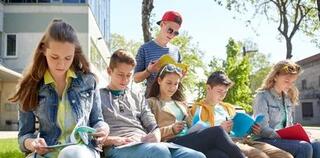We are pleased to publish this article originally published in the Discuss Community of Practice on Lifelong Learning by Randolph Preisinger-Kleine. It is a publication in German, entitled "Valuing non-formal and informal learning for sustainability" draws conclusions on expert interviews on education for sustainable development in Germany. The author is Dr. Mandy Singer-Brodowski, Freie Universität Berlin, Institut Futur, and the report, in German, is featured below and attached.
Here's a selection of key findings:
In recent years, non-formal education has professionalized, differentiated, and expanded quantitatively due to increased demand from the formal education system. An increasing institutional intertwining of both education sectors can be observed: non-formal offerings are entering into schools, educational landscapes are being constructed, and collaborations between NGOs and schools are being initiated. This growing institutional intertwining has contributed to a blurring of boundaries between both sectors. On one hand, this development facilitates the implementation of non-formal educational offerings and enhances their effectiveness. On the other hand, according to experts, it leads to a tendency of formalizing non-formal offerings (Rauschenbach), and consequently, to the risk of an increasing dominance of formal educational paradigms.
The interviewees describe the impulses of the UN Decade of Education for Sustainable Development (ESD) as essential drivers for the spread and diffusion of ESD, leading to a significant professionalization in the field. Additionally, they consider the communication of the added value of ESD (especially for new actors) and the presentation of good practices as crucial success factors in the past. ESD should ideally be made compatible with existing educational practices. This is also seen as a significant strategy from a diffusion theory perspective (Rogers 1983), which the interviewed actors reflect on and implement themselves. However, social innovation in ESD also exhibits characteristics that may impede diffusion, particularly the complexity of global and local sustainability issues and the associated risk of overwhelming both educational providers and participants. For this reason, in addition to public campaigns, it is recommended to develop more localized measures for communicating ESD, in the form of materials and lived concepts, to demonstrate how ESD can be practiced.
The interviewees advocate for a multifactorial and process-oriented understanding of transformation, which has shaped not only the general sustainability discourse in recent years but is also gradually entering the debate on ESD. According to the experts, a key leverage point lies in initiating and supporting a societal discourse on these sustainability transformations. The ESD community can benefit from formats in transdisciplinary research: Citizen Science, science shops, or living labs enable a transformation- and process-oriented knowledge construction and thus provide a broader perspective on learning in the context of transformation, which can be embraced more by non-formal education providers. In this context, the respondents advocate for action-oriented work and learning, primarily in an experimental mode, to address the complex and dynamic societal upheavals. The motivation generated by such a practical learning and working approach is considered crucial by the interviewees, especially given the potential frustration and overwhelm in the context of addressing global sustainability issues.
As formal education is perceived by experts to be still too oriented toward specialized textbook knowledge, they also call for discourses on the necessity of a fundamental realignment of the education system to enable a sustainable future.
Closely linked to the discourses on sustainability, transformation, and education is the leverage point of narratives. Although the respondents do not fully agree on the conceptual description of narratives, they see a high motivational and activation potential in positive stories, visions, and imaginations about a sustainable future. The subject of these narratives about a better future can, on the one hand, be a good life through the everyday cultural integration of sustainability aspects into individual lifestyles. On the other hand, beyond individual consumption and lifestyle changes, there should also be narratives about political possibilities in the diverse arenas of the democratic space.
Editor's note - DISCUSS orginally was a project funded within the EC's LLP KA4 and is led by Ludwig-Maximilians-University in Munich with CR&DALL and PASCAL at the University of Glasgow as partners along with Praxis und Wissenschaft GmbH (Germany), NEXUS Europe(Ireland), IDEC SA (Greece), MENON (Belgium), Observatory for Lifelong Learning (Romania), Information Systems Management Institute (Latvia). It is pleasing to see the work continuing in this excellent forum for discussion.
Discussion topics:
- Log in to post comments














Latest Comments